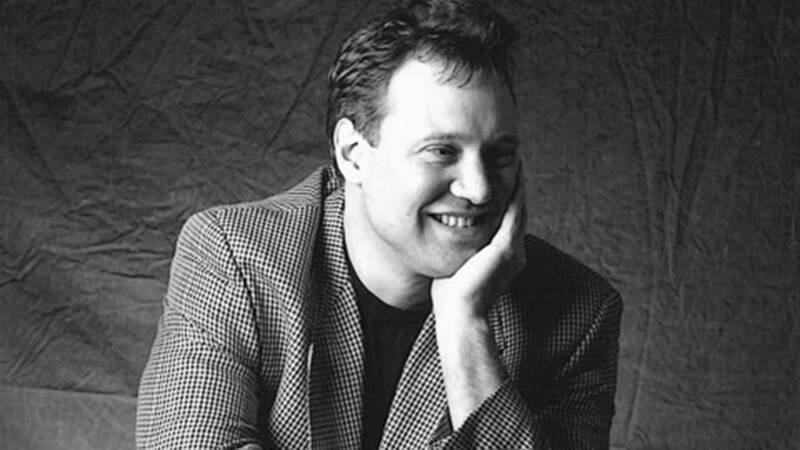You are viewing your 1 free article this month. Login to read more articles.
Season ticket
Will the intimacy and impact of Ali Smith’s Autumn shine through on stage?
Published in 2016, Autumn, the Booker-shortlisted first book in Ali Smith’s seasons quartet, captured the sense of bitter division that characterised England in the months following the Brexit vote. The first line is a twist on Dickens, “It was the worst of times, it was the worst of times”, and captures something of the mood of time (little did we know). Its prose is playful and spry as it knits together the story of 101-year-old Daniel Gluck, who is living in a care home, and Elizabeth, a university lecturer in her 30s, and the bond that forms between them. Like so much of Smith’s work, it is a multilayered meditation on art, on time and its passing, on politics—the Financial Times called it “the first serious post-Brexit novel” and it was certainly one of the earliest books to really pinpoint where we were in that moment and what led us there.
All of which is to say that Autumn, on the surface, does not necessarily sound like a likely candidate for stage adaptation. Stage adaptations of novels often favour the “plotty”, those with strong, clear narratives. Autumn is a text of memory and place and time—“past, present and strange timeless limbos exist alongside each other” said the Independent in its review. Plot is not its most obvious quality.
Yet this autumn (appropriately) London’s Park Theatre and the North Wall in Oxford will present a new stage version of the novel by young playwright Harry McDonald (a recent nominee for The Stage’s Debut Awards for his first play, “Foam”).
Autumn sounds like a challenging text for anyone to adapt, let alone someone relatively early in their writing career, but on the other hand, Smith is a writer keenly interested in form. Her previous novel, the 2015 Baileys Women’s Prize-winning How to be Both, is comprised of two stories, one set in 15th-century Italy, the other in modern-day Britain, and the reader can read the novel in both orders should they wish. Theatre is a medium where form is arguably just as important as text and McDonald has shown himself to be a careful and rigorous thinker in this respect.
This adaptation of Autumn offers the opportunity to see a novel in which form and politics reflect one another, adapted by a creative team who are attuned to these things.
McDonald’s first play “Foam”, which was staged at the Finborough Theatre in London earlier this year, was inspired by the true story of Nicky Crane, a significant figure in the British skinhead subculture of the 1970s and 80s. He was also gay, and the play uses this as a way of exploring the complexity of identity. Spanning two decades of Crane’s life before his death from an AIDS-related illness, the text really dug deep into its protagonist’s character, with McDonald breaking the play down into five encounters with different men in a variety of public lavatories. It was an ingenious way of telling Crane’s story, each encounter building on the previous one and complicating our understanding of Crane. (“At a time when reactionary white supremacist rhetoric saturates our political discourse, this is a timely and important play,” wrote Dave Fargnoli in The Stage).
This is not quite the first time Smith’s novels have been staged—there have been amateur productions—but it is certainly the first adaption of a book from the seasons quartet. The production will be directed by Charlotte Vickers for the Park Theatre’s studio space—called the Park 90, because it seats 90. It remains relatively rare to see novel adaptations in spaces of this size. What small spaces like this lack in size and spectacle they can often compensate for in intimacy. Autumn is a novel concerned at once with the internal and external world and I can imagine it working well in such a space.
Stage adaptations of Booker-bothering novels tend to occupy somewhat larger spaces for several factors both artistic and pragmatic. They have name-recognition going for them and the sheen of prestige. Take Suzanne Heathcote’s adaptation of Kazuo Ishiguro’s Never Let Me Go, which recently opened at the Rose Theatre in Kingston. The Rose seats around 800 and the show will go on to tour mid-scale venues of similar sizes including the Bristol Old Vic, Malvern Theatre and the Royal & Derngate in Northampton. The reviews have been strong, but to my mind there’s something more intriguing about an attempt to engage with a complex text in a small space. This adaptation of Autumn offers the opportunity to see a novel in which form and politics reflect one another, adapted by a creative team who are attuned to these things. It’s a ripe time, too, to revisit a novel written at the moment when the hidden fissures in Britain became glaringly apparent.
Autumn is at the Park Theatre, London, from 16th October-2nd November




















